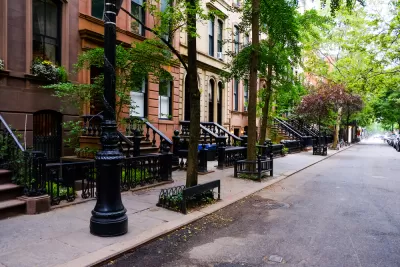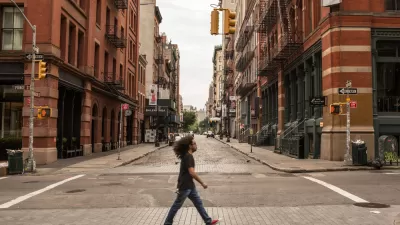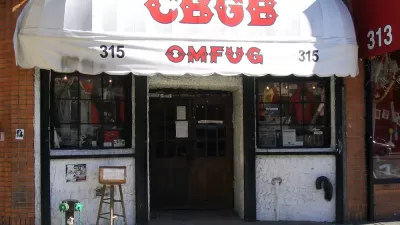A new study out of New York City reveals the worsening effects of segregation due to the city's "community preference" affordable housing policy, Seattle sets out to craft a policy of its own.

As Seattle develops a new community preference tool, damning evidence emerges of the policy failing to achieve its stated goals in New York City—actually exacerbating some of the outcomes it intended to mitigate.
J. David Goodman reports from New York City, where a report has recently been made public, after years of resistance from the city, into the city's affordable housing lotteries:
The report was finally released on Monday, following a federal court ruling, and its findings were stark: The city’s policy of giving preference to local residents for new affordable housing helps perpetuate racial segregation.
White neighborhoods stay white, black neighborhoods black, the report found.
Andrew A. Beveridge, a sociology professor at Queens College, conducted the research, and the portrait it paints is "far different picture than the one offered by Mayor Bill de Blasio, who has touted his record on housing as he runs for president."
One day before the news of the report broke in New York City, Josh Cohen was writing in Seattle on the subject of "community preference" housing policies tools. Cohen notes the controversial nature of community preference policies also while explaining how such policies work:
Used by New York, San Francisco, Portland and other city governments, preference policies give some applicants a better chance of landing a spot in a new affordable housing development, usually based on whether they live or work in the development's neighborhood. Typically, developers set aside a portion of the new units for a second lottery involving people who qualify for community preference.
Preference policies are controversial. Detractors say they entrench segregation by keeping poor people in poorer neighborhoods. Supporters say they give people a better chance to stay in their community as new investment comes in and the cost of living rises. People on both sides of the issue worry about how the policy intersects with federal fair housing law, which is meant to prevent discrimination.
Little did Cohen know that a report would emerge the vest next day confirming the detractors' argument. What Cohen did know is that the city of Seattle voted on June 24 to authorize the creation of a community preference policy. "Now Seattle’s Office of Housing is creating guidelines for developers who choose to use a preference policy when they lease new affordable housing projects."

Planetizen Federal Action Tracker
A weekly monitor of how Trump’s orders and actions are impacting planners and planning in America.

San Francisco's School District Spent $105M To Build Affordable Housing for Teachers — And That's Just the Beginning
SFUSD joins a growing list of school districts using their land holdings to address housing affordability challenges faced by their own employees.

The Tiny, Adorable $7,000 Car Turning Japan Onto EVs
The single seat Mibot charges from a regular plug as quickly as an iPad, and is about half the price of an average EV.

As Trump Phases Out FEMA, Is It Time to Flee the Floodplains?
With less federal funding available for disaster relief efforts, the need to relocate at-risk communities is more urgent than ever.

With Protected Lanes, 460% More People Commute by Bike
For those needing more ammo, more data proving what we already knew is here.

In More Metros Than You’d Think, Suburbs are Now More Expensive Than the City
If you're moving to the burbs to save on square footage, data shows you should think again.
Urban Design for Planners 1: Software Tools
This six-course series explores essential urban design concepts using open source software and equips planners with the tools they need to participate fully in the urban design process.
Planning for Universal Design
Learn the tools for implementing Universal Design in planning regulations.
Smith Gee Studio
City of Charlotte
City of Camden Redevelopment Agency
City of Astoria
Transportation Research & Education Center (TREC) at Portland State University
US High Speed Rail Association
City of Camden Redevelopment Agency
Municipality of Princeton (NJ)





























